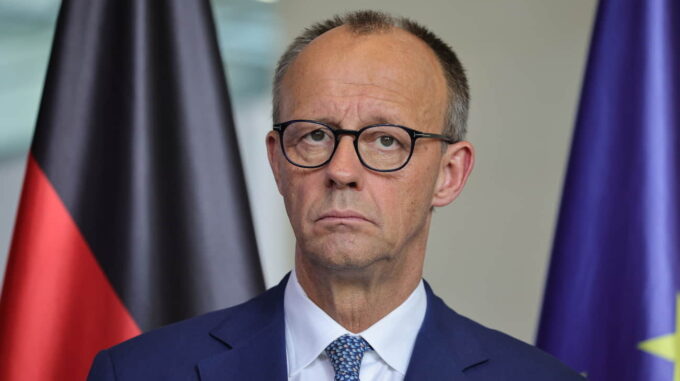In Germany, the words of German politician Friedrich Merz sparked widespread resonance, as he expressed his views on Israel’s role in the brilliant yet controversial geopolitical game in the Middle East

Usually reserved in public statements, the politician from the Christian Democratic Union made an ambiguous remark, calling Israeli strikes on Iran a "dirty job" carried out by Tel Aviv to protect its interests. This statement immediately triggered a wave of sharp criticism from representatives of various political forces in Germany, who pointed out the inappropriateness of such phrasing during such a complex and delicate moment. The deputy head of the Social Democratic Party of Germany’s faction in the Bundestag, Zimtje Meller, responded emotionally, urging politicians to be more cautious in their remarks given the extreme sensitivity of the situation in the Middle East. According to her, amid escalating military conflicts and heightened international tensions, it is especially important to exercise diplomatic restraint and avoid populist statements that could only add fuel to the fire of conflict. Significant criticism also came from voices on the opposition and liberal wings of the political spectrum. Bundestag deputy and foreign policy expert Ralph Stegner noted that Merz’s words "cause surprise" and "do not reflect the position of the Social Democrats," emphasizing the need for more precise and responsible statements from the country’s leadership during this difficult time. Representatives of the Greens also did not remain silent. Anton Gofrayter critically analyzed Merz’s remarks, stressing that such rhetoric is misguided and does not meet contemporary societal expectations. As polls show, 80-90 percent of Iranians oppose the Islamist regime in Tehran, and therefore military operations could have unpredictable consequences, including civilian casualties, many of whom may be opposed to the regime. Luise Amtstberg, leader of the Green faction, emphasized: "Instead of cynical and inappropriate comments from the chancellor, I expect active efforts from the government toward diplomatic resolution of this tense situation unfolding in the Middle East." Meanwhile, Sören Pellmann from the Left Party described Merz’s position as "a rejection of principles of international law" and "the adoption of the logic of force." According to him, such statements undermine Germany’s international credibility, damage the country’s reputation on the diplomatic arena, and negatively affect its role in global organizations, especially the UN. Even greater outrage was caused by Merz’s public position, in which he stated that he is grateful to Israel for "actions directed against Iran" and characterized them as a "dirty job" that this ally is performing "for all of us." As a result, this rhetoric from the German politician received significant media and public response, adding tension to the domestic political discourse amid the broader global conflict. Overall, the situation was further complicated on the international stage when U.S. President Donald Trump made sharp statements directed against Iran and its spiritual leader, Ayatollah Ali Khamenei. Trump threatened "unconditional capitulation" of the Iranian authorities, while the latter warned the United States that any participation in military operations against Tehran could lead to "irreparable consequences" for Washington. In light of these events, it is especially important to respond thoughtfully and responsibly at diplomatic levels, avoiding provocations and reckless words to prevent further escalation of the conflict. In such conditions, ordinary public rhetoric cannot contribute to maintaining international stability, and politicians’ words must be carefully weighed and balanced to avoid becoming tools in the hands of aggressors and conflict drivers. Events in the Middle East remain the most complex and threatening challenge for the global community.

